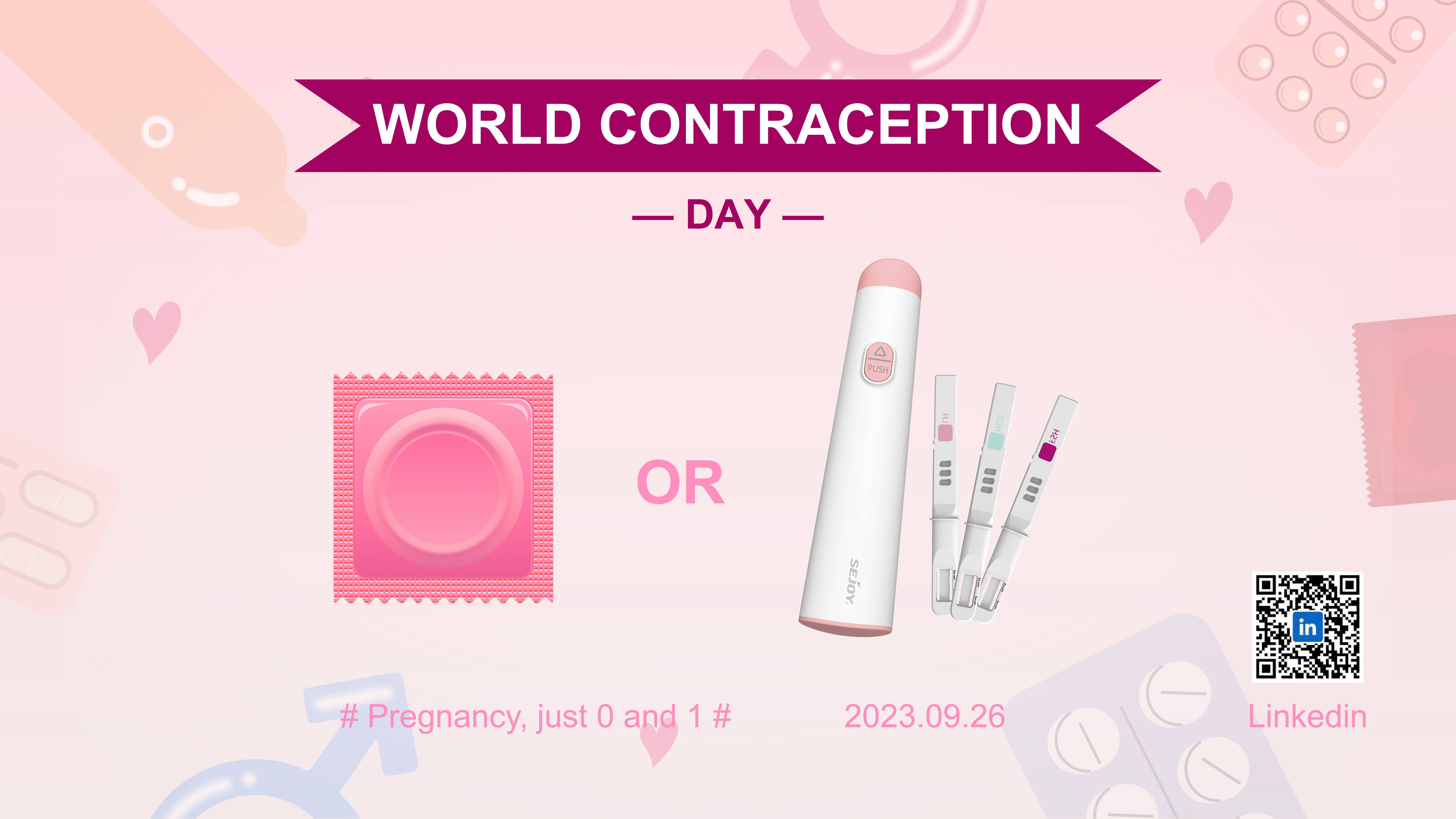News
-

See you tomorrow!CMEF
As the exhibition dates draw near, this is a prime opportunity to explore the latest innovations in medical devices and engage with our team in person. We look forward to meeting you at the exhibitions, sharing our products and services, and exploring future collaboration opportunities!Learn more + -

LOOK FORWARD TO MEETING YOU AT THE 134RD. CANTON FAIR
The Canton Fair is the oldest and largest comprehensive international trade event in China, founded in the spring of 1957 and held every spring and autumn. It has a history of nearly 63 years to this day. The 2023 Autumn Canton Fair is about to be held, and Sejoy will showcase a series of POCT in...Learn more + -

Looking forward to meeting you at cmef!
The China International Medical Device Expo (CMEF) is the largest medical device exhibition in the Asia Pacific region, held annually in spring and autumn, bringing together the latest medical device products and technologies from both domestic and international sources. It is a wind vane and win...Learn more + -

We’re gearing up for Africa Health Exhibition in South Africa!
We are thrilled to announce that Sejoy will be participating in the upcoming Africa Health Exhibition in South Africa next week. This is an outstanding opportunity for us to showcase our latest innovations and solutions, engage with industry experts, build relationships, and learn best practices ...Learn more + -

Happy Mid-Autumn Festival and happy National Day
Mid-Autumn Festival and National Day are coming soon. On behalf of the company, I would like to send my best wishes to you! May the Mid Autumn Festival bring you endless joy and warmth, and National Day bring you prosperity and happiness. Mid-Autumn Festival is one of the important traditional fe...Learn more + -

Do you really know how to measure blood glucose? How to choose a household blood glucose meter?
A blood glucose meter is an instrument for measuring blood glucose, the most common being an electrode type blood glucose meter, which generally consists of a blood collection needle, a blood collection pen, a blood glucose test strip and a measuring instrument. The blood glucose test strip is di...Learn more + -

World Contraception Day
September 26th is World Contraception Day, an international commemorative day aimed at raising young people’s awareness of contraception, promoting responsible choices for their sexual behavior and reproductive health, increasing safe contraception rates, improving reproductive health educa...Learn more + -

Blood Glucose Monitoring System
Blood glucose monitoring system is the basic means for diabetic to manage diabetes, and blood glucose meter value is an important basis for doctors to judge the condition and adjust plans. Inaccurate blood glucose measurement will directly affect the control of diabetes. In daily life, diabetic m...Learn more + -

How to choose a home blood glucose meter?
Blood glucose monitor system is an important part of diabetes management, so it is very important for sugar friends to choose a suitable blood glucose meter. What are the tips for choosing a blood glucose monitor? Tips for Choosing a Blood Glucometer Low pain and low blood requirement. When monit...Learn more + -

Uric Acid Monitoring System
The UA-105 uric acid analyzer is a high-performance uric acid testing device. It has the following characteristics: Fast detection: The UA-105 uric acid meter adopts advanced technology and can measure uric acid levels in just a few seconds. This allows you to quickly obtain accurate test results...Learn more + -

2023 Africa Health – Invitation
Dear new and old customers: Hello everyone! Firstly, I would like to express my gratitude to our new and old customers for their continuous attention and support to China Fanben Network Technology Co., Ltd. It is with everyone’s help and care that “Zhejiang sejoy” has developed ...Learn more + -

Medica 2023│sejoy invites you to join us in Germany
Exhibition Introduction MEDICA is a world-renowned comprehensive medical exhibition, recognized as the world’s largest hospital and medical equipment exhibition, and ranks first in the world medical trade exhibition due to its irreplaceable scale and influence. MEDICA is held annually in Du...Learn more +

